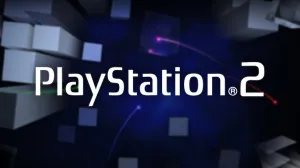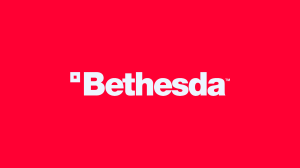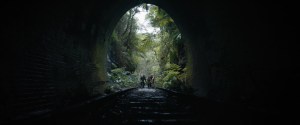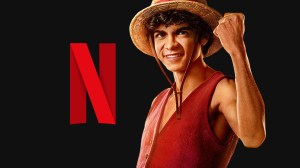Music is an integral part of the cinematic experience. While the actors on the screen deliver the story, the costumes and sets offer a sense of place, and the cinematography and direction set the mood and tone, it’s the music — be it an orchestral score or a well-curated soundtrack of popular songs — that brings it all together. It’s the foreboding, unsettling minor key strains that makes the hair stick up on the back of our necks right before the madness begins in a horror movie. It’s the bright, thumping bass right before a party scene that lets you know it’s going to be a good night for the protagonist. But while music is critical for nearly every movie since the very dawn of film, there’s something special about the songs and scores connected to Batman films.
Videos by ComicBook.com
The music of Batman films is as much a character as the Dark Knight himself — from Danny Elfman’s sweeping sounds for 1989’s Batman, to the small, but mind-blowing taste that we’ve been given of Michael Giacchino’s score for this week’s debut of The Batman, to the notable pop songs that have become so richly entangled with the character’s cinematic canon. As we welcome a new set of music into Batman’s sonic universe, let’s look at some of the songs that help provide the pulse to his world on the screen.
Batman 1966 Theme Song – Neal Hefti
While most of the songs highlighted in our musical appreciation of Batman hail from theatrically-released movies, we would be remiss if we did not take a moment to show some love and respect for the first (and arguably most iconic) musical cue associated with the character — the theme song for the 1966 Batman television series. The song is so simple it’s almost ridiculous: just “Batman” sung over and over, with a “na-na-na-na Batman!” thrown in at the end. It’s bright, poppy, and fast-paced; and while it doesn’t necessarily “feel” like the Batman of more contemporary times—and, indeed, Adam West’s “Bright Knight” is a vastly different take on the character for a very different time—it’s impossible to hear the song and not want to sing along.
In many respects, that Batman television show and its infectiously-catchy theme song helped save Batman as a character and pop-culture icon, in a time when sales of his comic books were falling and his popularity was waning. This theme song will always have a place of high revere in the Batman musical canon both on its own, and as an influence for another notable Batman song.
Batman (1989) – “Batdance” – Prince
While many (rightly) regard Danny Eflman’s score for 1989’s Batman to be the soul of that film, the real pulse and groove comes from the late great Prince. The musician supplied a whole soundtrack of songs for the project, including the fan-favorite track “Partyman”, which is prominently featured in the film itself as Jack Nicholson’s Joker and his henchmen deface exhibits in the Gotham City art museum. (The official music video for “Partyman” also serves to remind us that we were absolutely robbed of a cinematic universe in which Prince played The Joker, but I digress). But it’s actually “Batdance”, another track contributed by Prince for the soundtrack, that deserves to be recognized — in part because of its tie to the aforementioned ’66 theme.
The opening of “Batdance” features a sample of that theme song (as well as dialogue from the film), before it breaks out into a multi-genre groove fest that is simultaneously slinky, funky, dark, and bright. Sure, it could be argued that “Batdance” doesn’t necessarily sound like something that belongs in any Batman film, but it’s incredibly representative of the variety of ways Batman is portrayed across the entirety of his canon and media. At various turns, Batman has been campy and poppy, dark and gritty — and often, a blend of all of the above. “Batdance”, by having all of those tones and themes, is a perfect transition from the “Bright Knight” Batman of the 1960s to a more modern era as ushered in by Tim Burton’s films.
Batman (1989) – “The Batman Theme” – Danny Elfman
Let’s be honest — it’s an iconic theme. The warm brass slowly spreads out across the sonic landscape, joined by the expansive strings, only to explode into a frenetic march that feels very much like running across rooftops before leaping into the dark of night. Elfman’s “The Batman Theme” is an instantly recognizable piece of music that very much defines not only Burton’s 1989 film, but has been its own “moment” for decades. In the same way that John Williams’ main theme from 1978’s Superman is a definitive sound for the Man of Steel, Elfman’s Batman theme gives you a sense of everything you need to know about the Caped Crusader before you even see him onscreen.
Similarly to Prince’s “Batdance”, Elfman’s piece is also a blend of tones that honors the multiple facets of Batman as a character, with nods to his darkness but also his humor. Pair it with Michael Keaton’s performance, and you have what might be one of the most authentic representations of the heart of Batman — and Bruce Wayne — to have ever graced the screen.
Batman Returns (1992) – “Birth of a Penguin – Pt. 1” – Danny Elfman
While Elfman continued many of Batman‘s sonic elements in his score for Batman Returns, the addition of new villains like The Penguin and Catwoman also presented new opportunities to redefine the sound of Gotham. What’s most interesting about the Batman Returns soundtrack is that, for a film that is notably darker and more grim than its predecessor, Elfman’s soundtrack has an almost brighter feel. This is especially notable in “Birth of a Penguin – Pt. 1” which has a softer and more cheerful tone that is structurally supported by the dark strains familiar to “The Batman Theme” from the first film.
Elfman’s use of “The Batman Theme” within several tracks of the Returns soundtrack is also worth noting, as it serves as something of a metaphor for how Batman and Gotham’s villains are truly interconnected and reliant upon one another.
Batman Forever (1995) – “Kiss from a Rose” – Seal
Batman Forever marked a shift in Warner Bros.’ cinematic Batman franchise, with director Joel Schumacher and star Val Kilmer taking over for Burton and Keaton, and Dick Grayson/Robin (Chris O’Donnell) being introduced to movie audiences. The film had a bit more of a psychological bent than its predecessors, but also had a much campier tone that was more aligned with the 1960s Batman. The actual score for the film, provided by Elliot Goldenthal, shared a lot of similarities with Elfman’s previous work — particularly, the anthemic sound from big brass and strings, and the use of discordant tones and, thus, offered a bit of auditory continuity for audiences.
And while Goldenthal’s score is quite good, only one piece of music is commonly connected to Batman Forever, and that’s Seal’s “Kiss From a Rose”. The song was originally released a year prior to Batman Forever, so it wasn’t created for the film, but that hasn’t prevented it from becoming a part of the very DNA of Batman’s world. The instant you hear the song, you can feel the very mood of Batman Forever. One of the things that sets Batman Forever apart as a film is that it pairs over-the-top campiness with a bit of darkness to create something that has a unique richness. It’s that richness that “Kiss From a Rose” encapsulates. The song has bright tones and creates a sweeping soundscape, but there’s a richness and longing that brings just a bit of darkness. Batman Forever is a sexy movie and “Kiss From a Rose” is a sexy song.
Batman & Robin (1997) – Full Soundtrack, Various Artists
Batman & Robin wasn’t exactly a winner of a film, though it wasn’t without its charms, such as Uma Thurman’s Poison Ivy and Alicia Silverstone’s Batgirl. The film is very much a reflection of the late 1990s when, just a few years away from a whole new millennium, culture was trying to both define itself with the past and create a new self for the future.
Enter the Batman & Robin soundtrack. Yes, the whole soundtrack. It’s a colorful sampling of popular music at the time that feels messy, complicated, and comforting all at the same time — kind of like Batman himself. Standouts here are “The End is the Beginning Is the End” by The Smashing Pumpkins and “Breed” by Lauren Christy.
Batman Begins (2005) – “Vespertilio” – James Newton Howard, Hans Zimmer
If the Burton/Schumacher era of Batman films was a transition from the campy 1960s to something more comic book-oriented, then Christopher Nolan’s trilogy — beginning with 2005’s Batman Begins — was a full-on plunge into the dark corners of the source material. That feeling is reflected in the score, as the music in Nolan’s trilogy overall eschews popular music and instead pulls its emotional core from a rich, and at times pretentious, score from James Newton Howard and Hans Zimmer.
One could argue that many of the tracks on the Batman Begins score sound extremely similar to one another, and that’s not necessarily a bad thing. But there is one track that certainly sets the tone, and gives us our first sense that we’re not only witnessing the birth of a new take on Batman, but (in some respects) a new character altogether. “Vespertillo” vacillates between muffled brass, heavy percussion, and sometimes more muted tones, paired with an almost marching pace. It feels like the anxiety of walking through a dark, crime-riddled neighborhood at night, as well as the need to do something more to move on from that helplessness. The track sounds like an origin — and that’s exactly what the film delivers.
The Dark Knight (2008) – “Why So Serious?” – James Newton Howard, Hans Zimmer
One of the things that makes 2008’s The Dark Knight such an interesting movie is that it sets its story in a somewhat unique place in Batman’s history. Christian Bale’s Bruce has been operating as Batman for some time at this point, so we’re no longer dealing with a fledgling vigilante, or even one still honing his craft. But we aren’t dealing with a Batman who has been left cynical in his crusade, either, as the film sees Batman in a place where he thinks he might be able to turn over the pursuit of justice for Gotham to the legitimate authorities — in this case, Aaron Eckhart’s Harvey Dent — and move on to have a normal life of his own.
Enter Heath Ledger’s Joker… and also, enter Zimmer’s score. The soundscape of The Dark Knight contrasts greatly from previous Batman film projects, in that it’s less Batman’s score, and is instead focused on the heart of the film’s villain (and, in a larger sense, the heart of Gotham City as well). This is jarringly obvious in the piece “Why So Serious?” The piece accompanies the brutal bank heist that opens the film, and its mix of orchestral and techno elements make it clear that we’re dealing with an uncontrolled element and the stakes have just been raised.
Batman: Arkham Origins (2013) – “Arkham Origins Main Titles” – Christopher Drake
Yes, Batman: Arkham Origins is a video game and not a movie — but tell that to its score. In fact, tell that the scores of all of the games in the Batman: Arkham series. The premise of this game finds Batman in the second year of his crimefighting career, as he is considered an outlaw by Gotham City’s police. So, not only do you have Batman dealing with being hunted by the authorities, but also with a significant bounty on his head courtesy of Black Mask. It’s intense, and so is the music from Christopher Drake. With shifting tempos and exquisitely rising strings, and a mix of clean, graceful top notes and an urgent, pulsing bass line, Drake’s main titles invokes both the urgency and the purity of Batman’s mission. It’s thrilling.
The Batman (2022) – “The Batman” – Michael Giacchino
If Michael Giacchino’s “The Batman” is any indication of what to expect from Matt Reeves’ film, we’re in for a take on the Batman mythos that reveres the comics and films that came before it, but also offers something uniquely new. It’s a little more layered and nuanced, and every bit as complex and thrilling as we expect a Batman story to be.
Giacchino’s Batman theme has a sonic warmth in its first half, only for a sharp, insistent transition to move it into a darker, richer-toned second half, before finally coalescing in a cacophony that embraces both. This is not a track that is anthemic in the way that Eflman’s theme was, but it has a richness of its own — a complex balance of dark and light that feel like they’re in a perpetual battle with each other. With The Batman following the still-new vigilante as he uncovers corruption that may connect back to his own family, the internal battle that is encapsulated in the score may very well be one we also see play out on the screen.
***
The Batman will be released in theaters on Friday, March 4th.








